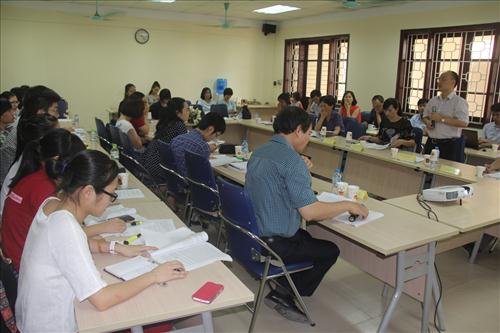
This series of seminars is a place for young staff to publish their research as well as have the opportunity to exchange expertise with scientists inside and outside the university to improve their research capacity. This activity is sponsored by Toshiba Foundation (Japan).
At the seminar, delegates listened to two scientific reports: “The Korean community in Hanoi under the lens of social space construction” by Master Nguyen Thuy Giang and “Confucian ethical norms for women - a case study of Empress Tu's Internal Instructions and Nguyen Trai's Family Instructions” by Postgraduate student Nguyen Anh Tuan.
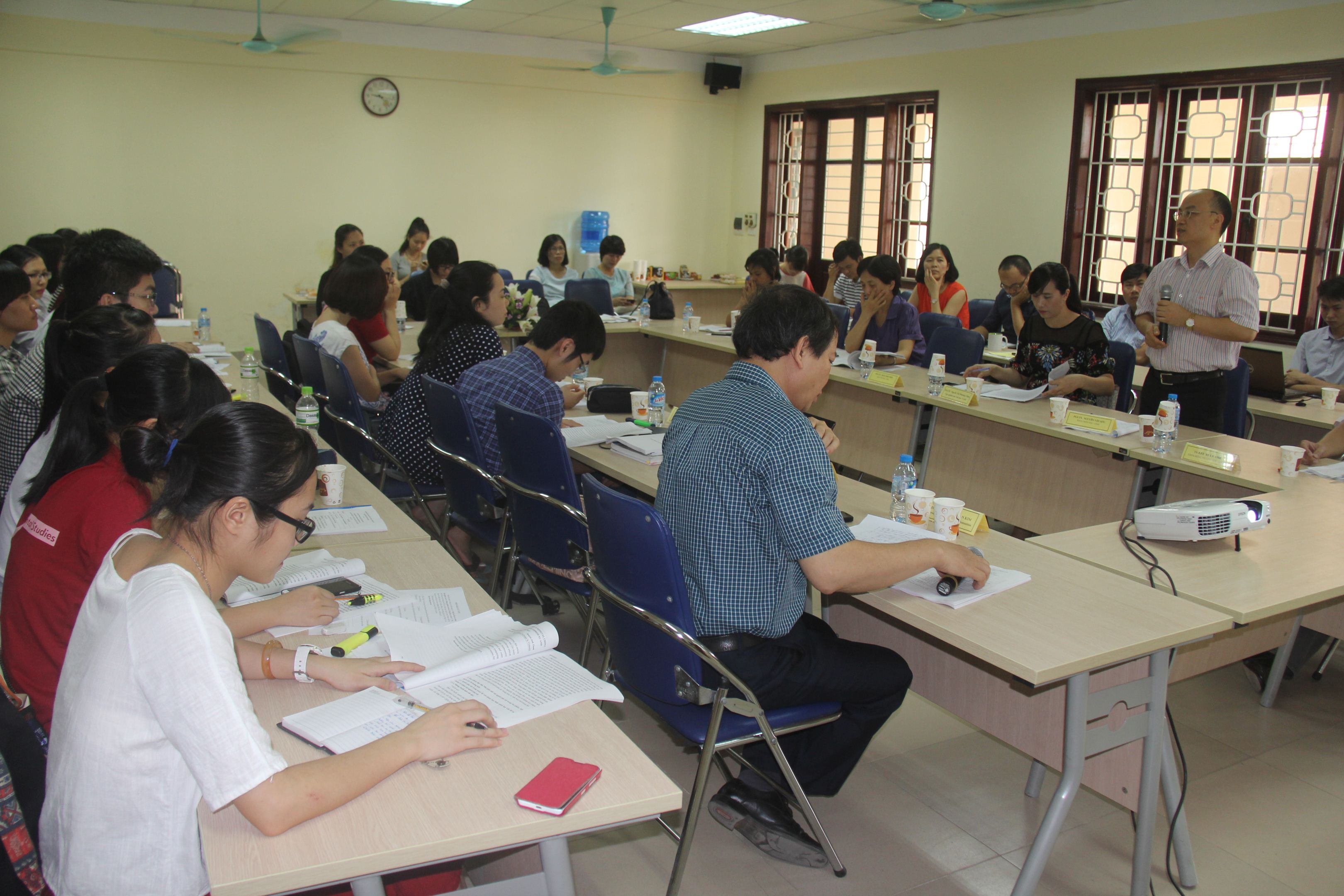
Overview of the discussion
The report by author Nguyen Thuy Giang chose to approach the Korean community in Hanoi from the lens of Henri Lefebvre's Social Space Construction. The author assumes that although the Korean community has only recently appeared in Hanoi, it has created its own social space and this space can be identified from three dimensions: material, social and spiritual. This theoretical approach guides the author's research orientation on the Korean community in Hanoi.
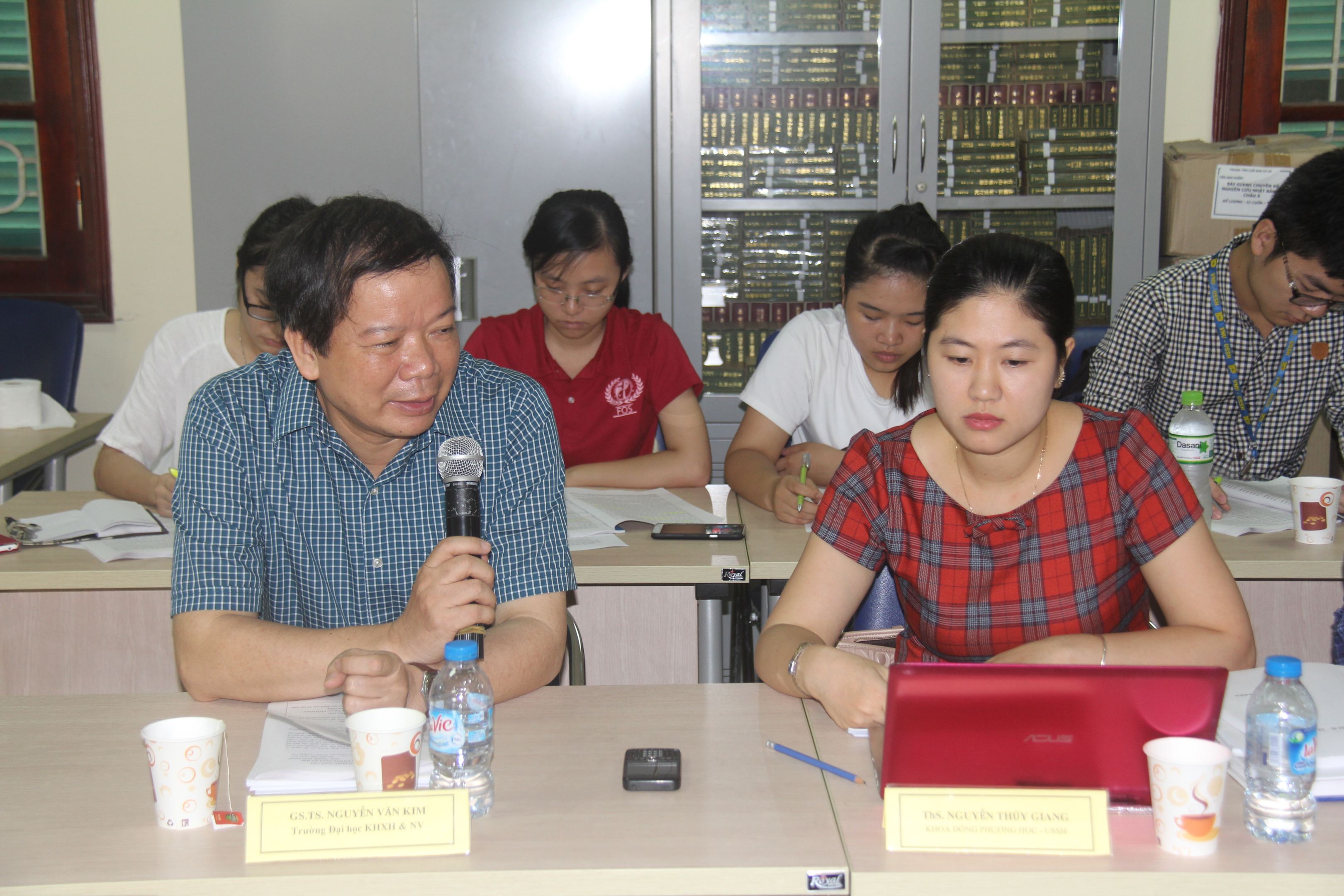
Prof. Dr. Nguyen Van Kim - Vice Principal of the School chaired the discussion
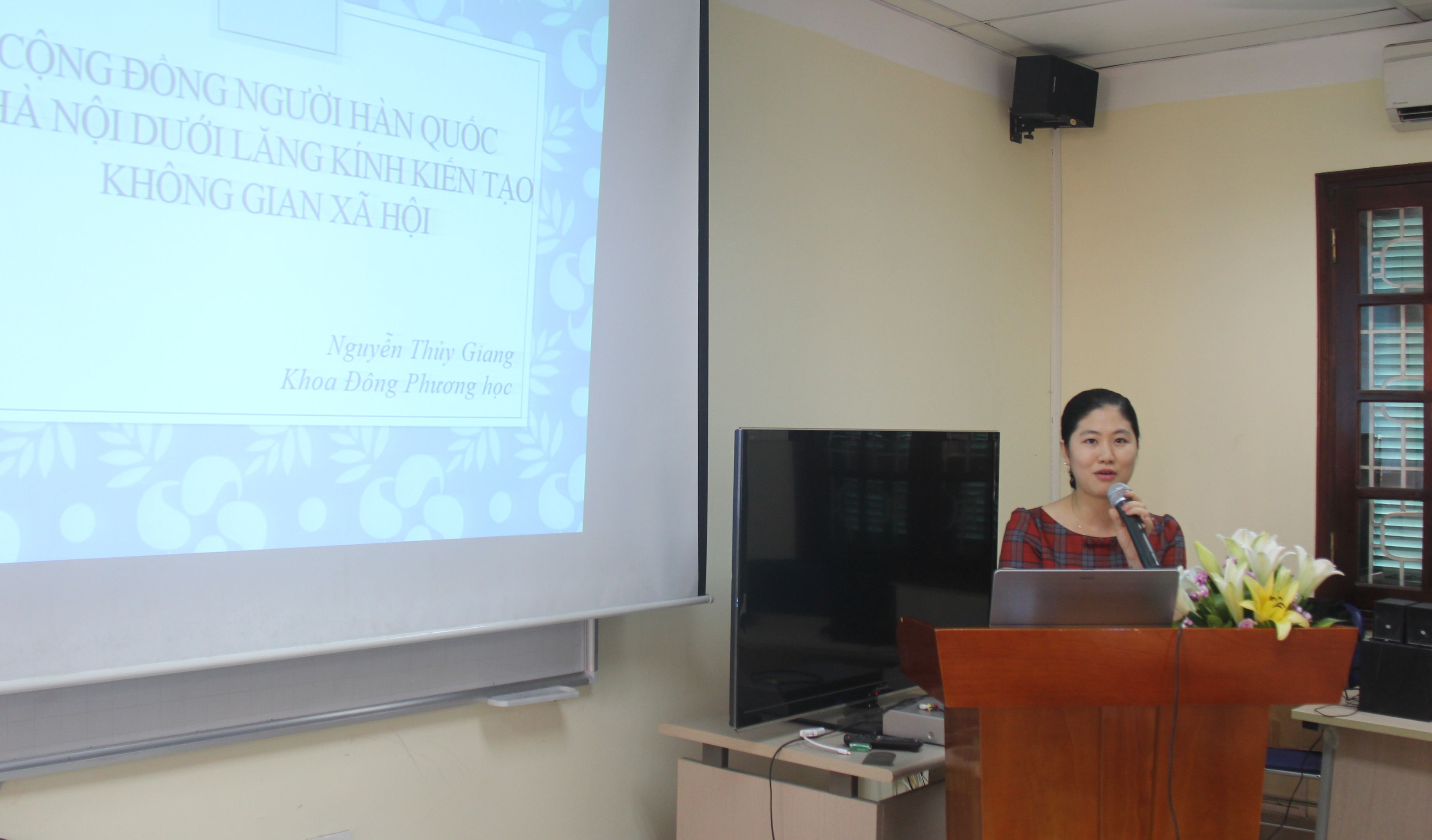
MSc. Nguyen Thuy Giang presents the report
The report of author Nguyen Anh Tuan stated that the research on Confucian ideology on women has long been limited to a number of phrases such as "three obediences and four virtues", "female fate is obedience", "men are superior to women"... The connotation of these concepts, although expressing some aspects of Confucian ideology on women, is still not enough to have a comprehensive view in a whole of Confucian concepts and ethical norms for this group of subjects. Therefore, the author has delved into a group of ancient books considered as "scriptures" that teach women ethical norms and behaviors in self-cultivation and social conduct with the aim of clarifying and building a comprehensive picture to better visualize the status of women in ancient Confucian society. The author focuses on analyzing the contents of two works, "Internal Instructions" by Empress Tu as one of the "Four Books for Women" and "Family Instructions Song" by Nguyen Trai to clarify Confucian ethical norms for Chinese and Vietnamese women in the medieval period.
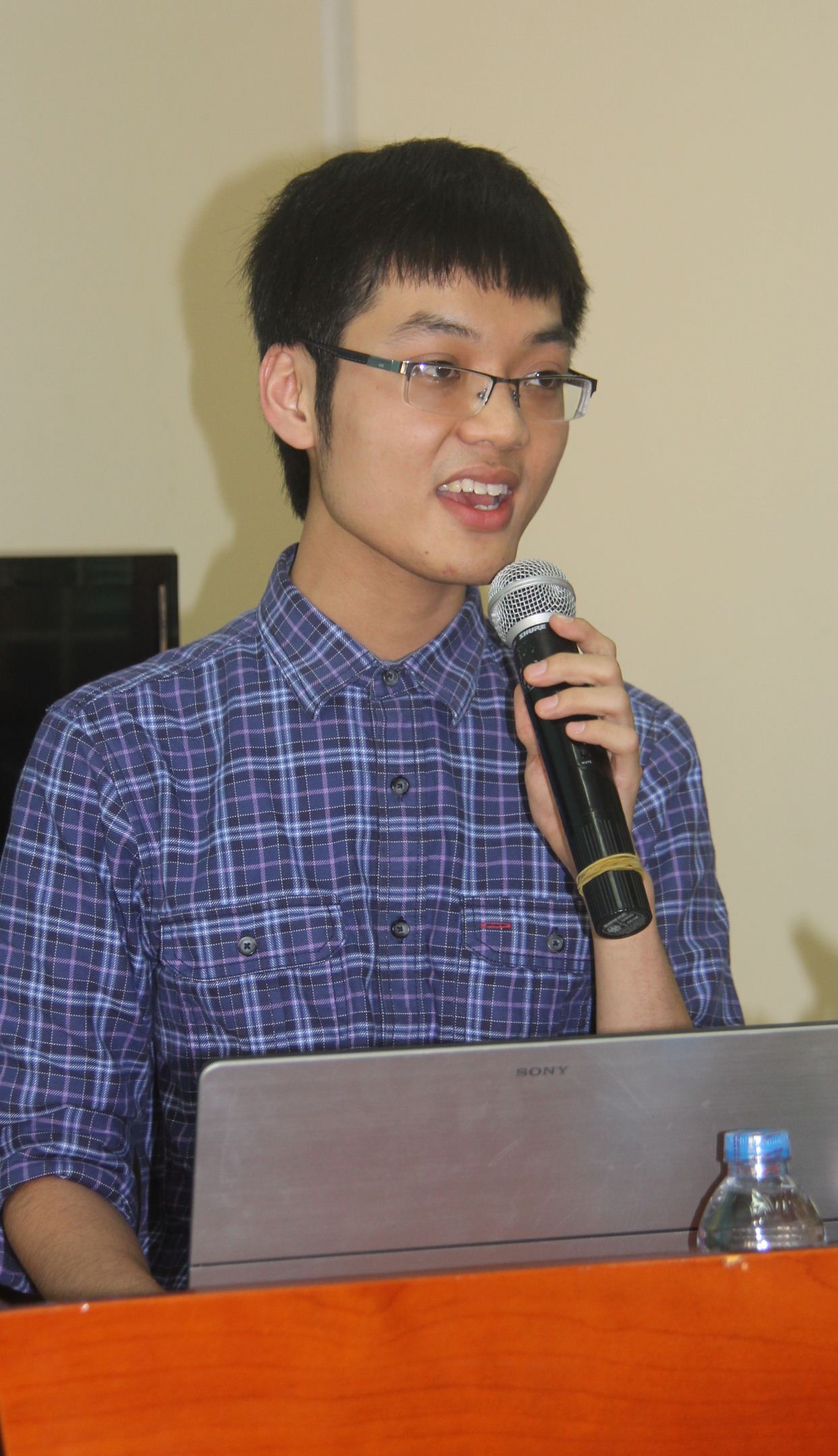
PhD student Nguyen Anh Tuan
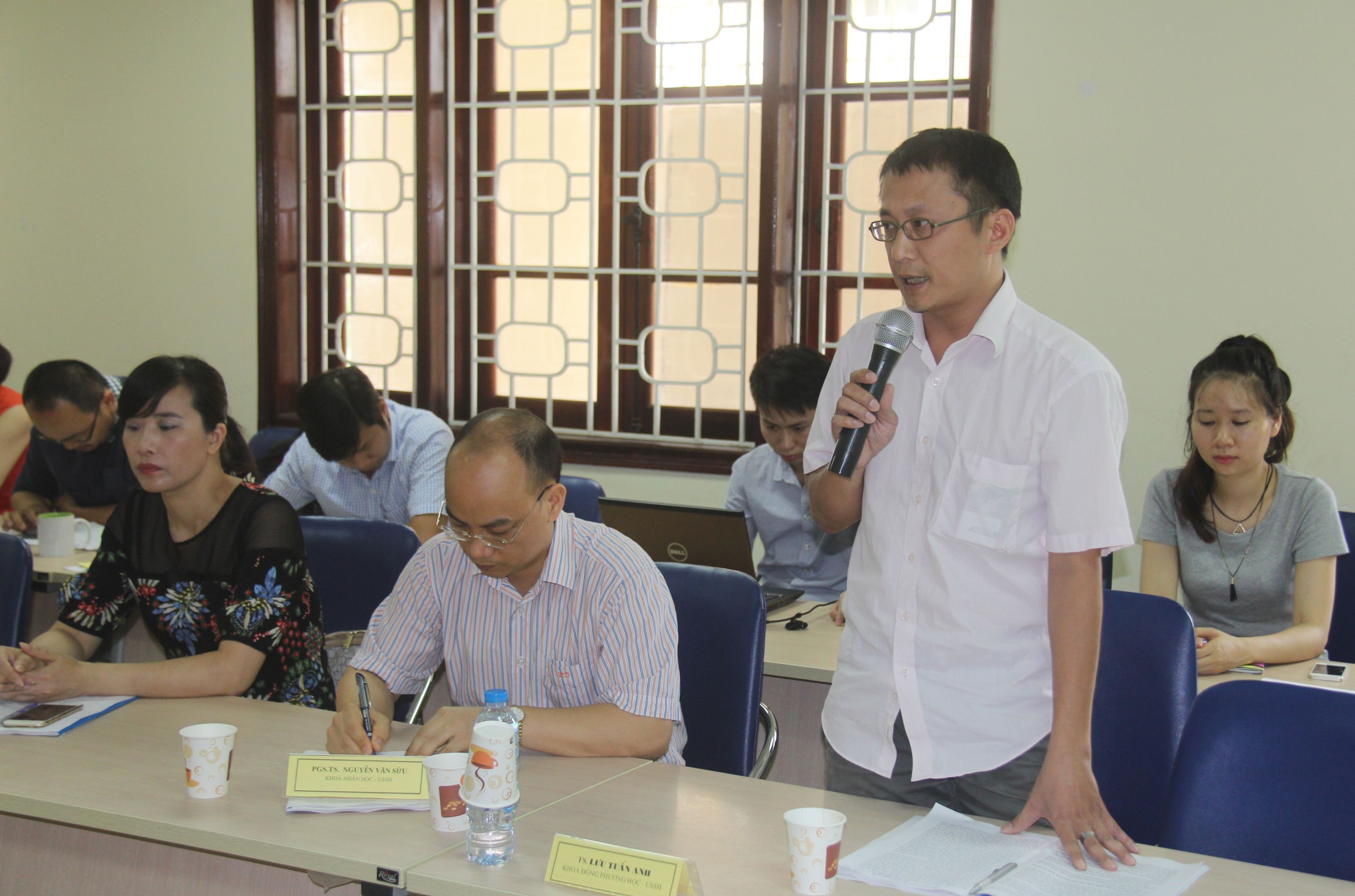
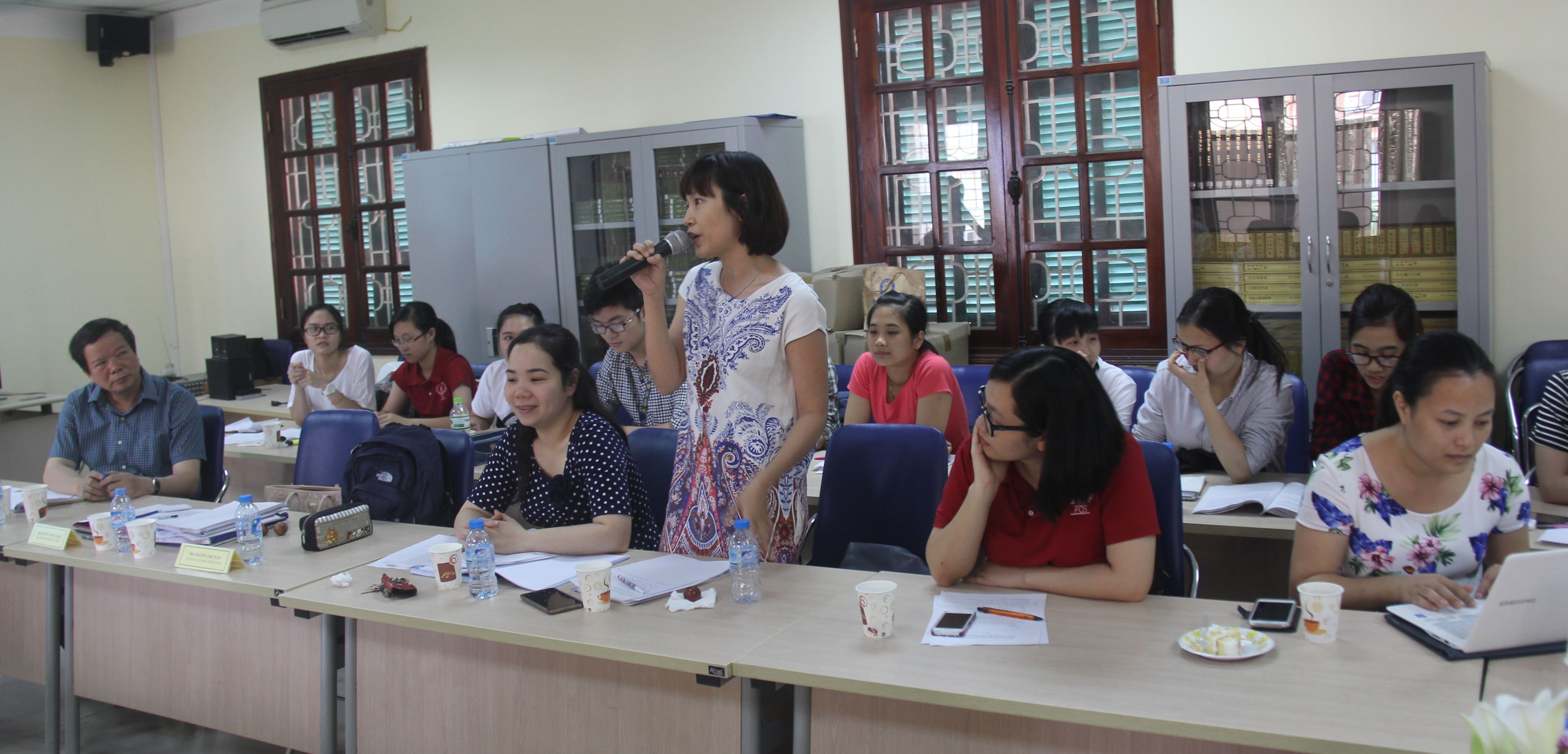
The two reports of two young researchers received many comments and suggestions from senior teachers.
Author:Thanh Ha
Newer news
Older news